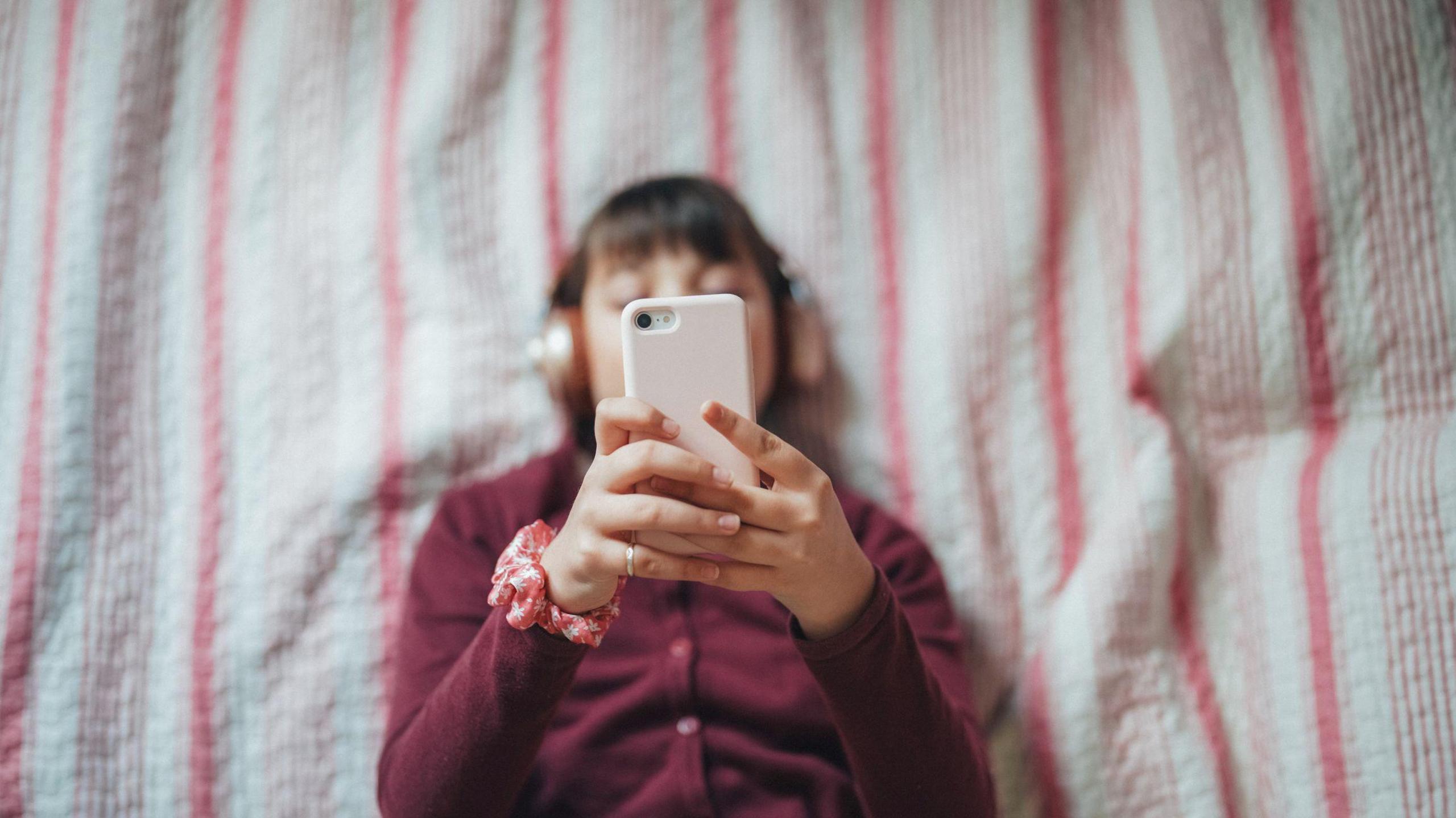TikTok sued for 'wreaking havoc' on teen mental health

- Published
More than a dozen states in the US have sued TikTok, accusing the social media platform of helping to drive a mental health crisis among teenagers.
A bipartisan group of 14 attorneys general from across the country allege that the company uses addictive features to hook children to the app and that it has intentionally misled the public about the safety of prolonged use.
TikTok called the lawsuit "disappointing" and said it believed many of the claims were "inaccurate and misleading".
The platform is already battling a law passed by Congress in April that would ban it from the US, unless Chinese parent company Bytedance agreed to a sale.
"TikTok knows that compulsive use of and other harmful effects of its platform are wreaking havoc on the mental health of millions of American children and teenagers," said the lawsuit filed in New York on Tuesday.
"Despite such documented knowledge, TikTok continually misrepresents its platform as 'safe' [and] 'appropriate for children and teenagers'."
New York Attorney General Letitia James said young people across the country had died or been injured doing TikTok "challenges" and many others were feeling "more sad, anxious and depressed because of TikTok's addictive features".
She cited a 15-year-old boy, who died in Manhattan while âsubway surfingâ - riding on top of a moving subway car. His mother later found TikTok videos of such activity on his phone, she said.
âTikTok claims that their platform is safe for young people, but that is far from true," Ms James said in a statement announcing the action.
The lawsuit singles out certain features as problematic: alerts that disrupt sleep; videos that vanish, driving users to check the platform frequently; and beauty filters that allow users to augment their appearance.
Though TikTok has promoted tools aimed at helping people limit their screen time or resetting what content they are served, it has misrepresented their effectiveness, according to the lawsuit.
The lawsuits were filed by 13 states separately and in the District of Columbia, where the attorney general also accused the company of running an unlicensed money transmission business via its "virtual currency" offering.
TikTok said in a statement on Tuesday: "We strongly disagree with these claims, many of which we believe to be inaccurate and misleading.
"We're proud of and remain deeply committed to the work we've done to protect teens and we will continue to update and improve our product."
The lawsuit asks the court to bar TikTok from such conduct and seeks financial penalties.
Regulators have launched similar cases against Facebook and Instagram for their impacts on young people's mental health.
The lawsuits add to the legal woes facing the wildly popular app, which more than half of US teenagers are estimated to use multiple times a day.
States such as Texas and Utah previously filed similar suits against TikTok focused on child safety.
The Federal Trade Commission, a government watchdog, accused TikTok in August of violating child privacy laws.
Imran Ahmed, chief executive of the non-profit Center for Countering Digital Hate, said he was hopeful the legal action would raise awareness among parents of the platforms' risks and pressure companies to modify their practices.
But Washington would also need to toughen the law for there to be significant change, he said.
"It sends a signal there is growing frustration that there are no other mechanisms available ... that will hold these platforms accountable," he said of the lawsuits.
Attorneys general "are doing what they can with the limited tools available to them, but really the ability of the judicial system to hold these companies accountable is limited," he said.